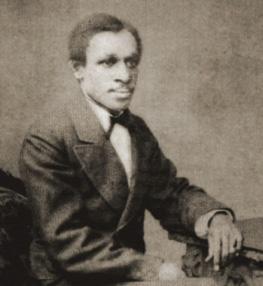
8 minute read
» Jazz
Although summer has come and gone like a lit match on a windy night, there are still a few more outdoor concerts to enjoy.
On Sept. 11 spend an afternoon (12 noon - 5:30 p.m.) on Governor’s Island (Colonels
Row Green) swinging to Jazz By the Water.
The accomplished list of musicians will include saxophonist and composer Patience Higgins with pianist Cyrus Chestnut, bassist Curtis Lundy, and drummer Ronnie Burrage (all are band leaders and recording artists in their own right); Charles Butler & The Blues Bandits, a combination of funk and soul; Return of the Frozen Earth featuring Paul Brown; Eddie Allen & Friends and special guest drummer, vibraphonist and composer Joe Chambers.
Chambers will more than likely play tunes from his most recent album “Samba de Maracatu” released earlier this year that marked his return to Blue Note Records after 23 years. The album is a nine track treasure chest of original compositions, standards and tunes by Wayne Shorter, Bobby Hutcherson and Horace Silver that features Chambers playing drums, vibraphone and percussion.
Many fans were upset to learn vocalist Antoinette Montague’s recent Jazzmobile gig
was cancelled due to rain, but don’t fret she will appear Sept. 23 (6 p.m. - 7:30 p.m.) at St. Albans Park on Merrick Blvd., in Queens. Montague, known for her belting blues and jazz timbre, will be joined by her long-time abled band featuring pianist and composer Danny Mixon, bassist Melissa Slocum, trumpeter Peter Velera and drummer Earl Grice. Sponsored by NY Council member I. Daneek Miller.
Montague’s vocals elicit journeys that embrace the power of jazz history. The Montague Experience is a refreshing bold flavor of genres topped with jazz that swings in the moment. She has released several albums; her latest is “World Peace in the Key of Jazz” and a children’s album, “Jazz Woman to the Rescue.” She is the CEO of the Jazz Woman to the Rescue Foundation, a non-profit organization that encourages the public to give old instruments no longer in use to youths without benefit of the arts in their schools.
The Jazz Gallery that keeps its
music on the shores of what’s happening and what’s coming will present three days of exhilarating music with strings at its core. On Sept. 9, it will be the Sara Caswell Quartet featuring violinist and composer Caswell, guitarist Jesse Lewis, bassist Ike Sturm and drummer Jared Schonio.
On Sept. 10 it’s Caroline Davis Portals with alto saxophonist Davis, trumpeter Mike Rodriguez, pianist Julian Shore, bassist Chris Tordini, violinists Sara Caswell, Josh Henderson and Joanna Mattrey, and Mariel Roberts on cello. Davis’ compositional practice integrates music with the cognitive sciences, anatomical structures, trauma, and the brain, influenced by her Ph.D work in music cognition. Recently, Davis has been using her platform for social justice, particularly devoted to prison reform and the release of political prisoners. Her unique configuration of instruments will bring another dimension to the jazz voice. Sets at 7:30 p.m. + 9:30 p.m. $25/$10 members; limited cabaret seating:
$35/$20 members.
On Sept. 11, the Yosvany Terry Quintet performs a mix of Cubana rhythms and jazz. His group features trumpeter Mike Rodriguez, pianist Osmany Peredes, bassist Yunior Terry and drummer Julian Miltenberger. Terry, a native of Cuba, is an acclaimed composer, saxophonist, percussionist, bandleader, educator and cultural bearer of the Afro Cuban tradition. On his album “Ancestral Memories,” Terry collaborated with French pianist Baptiste Trotignon to explore the cross-fertilization of France and Africa in the New World.
Sets at 7:30 p.m. and 9:30 p.m. Admission is $15/ Free for members. Limited cabaret seating: $25/$10 members. Livestream: $20/$5 members (link avail. 24 hrs). For more information visit the website jazzgallery.org
It’s another Sunday Serenade (VTY Jazz Arts) on Sept. 12 featuring the unique style of trombonist Steve Turre and The Next Generation Sextet, live and personal at the Cutting Room (44 East 32nd
Street), 3 p.m. - 5:45 p.m.
Turre’s Next Generation will feature young school musicians trumpeter Wallace Roney Jr., saxophonist Emilio Modeste, bassist Corcoran Holt and pianist Isaiah J. Thompson. Turre is a pioneer of using seashells as instruments. For 58 years, Turre has been active in jazz, rock, and Latin jazz. He has recorded more than 20 albums as a bandleader and has been a member of the Saturday Night Live Band since 1984. Turre is never without new music and with this young generation of musicians, all is possible and will happen.
Music charge is $30; for reservations call 917-882-9539.
Trombonist Steve Turre (Jonathan Chimene photo)

Benjamin M. Holmes, spokesperson and original member of Fisk Jubilee Singers
By HERB BOYD
Special to the AmNews
In last week’s classroom column we featured Mary Eliza Walker Crump, an original female member of the Fisk Jubilee Singers. To balance things, we now profile Benjamin M. Holmes.
Our usual process is to search the internet for information about the subject, but this week we will allow Mr. Holmes to speak for himself, thanks to the remarkable work of Gustavus Pike and his book “The Jubilee Singers, and Their Campaign for Twenty Thousand Dollars” (Lee & Sheppard, 1873).
“I was born,” Holmes began, “on the 25th of September, 1846, or 1848, at Charleston, S. C. My father taught me my letters. In 1853 I was bound as an apprentice to Mr. Weston, a colored tailor. I was so small then I could hardly see over the bench. I studied all the signs and all the names on the doors where I carried bundles, and asked people to tell me a word or two at a time until, in 1860, I found I could read the papers.
“My mother told me if I would learn to write,” Homes continued, “she would give me a gold dollar. A part of my duty was to sweep the store in the morning, and I took some time to look in the measuring books to see how the writing letters were made. In this way I learned to write. On Sundays, in 1860, the men in the store hired me to read the New York Tribune or Herald. I did not care much for the news myself; only the better the news the more they paid me.
“In 1862 the Yankees were near Charleston, and our owners wished to take us to the country,” Holmes noted. “As we were not inclined to go, we were privately sold to a trader. During the day we were kept in the slave mart, ready to be examined, and were fed on cow’s head, boiled grits, and rice; at night we were locked up. I read the papers to the keeper, and in consideration for that he would give me permission to go down on the wharf in the morning, and I never failed to look for the Yankee boats. I read Lincoln’s proclamation in the prison. Such rejoicing as there was then! One old man held a prayer meeting right there in the mart. I was finally sold to Mr. Kaylor, who gave me five dollars, told me to go and bid my mother goodbye, and meet him at the depot; but the trader would not allow me to leave the pen. The next day Mr. Kaylor took me out himself, granted me a few hours with my friends, and then sent me on to Chattanooga.
“Here he first hired me out at a hotel,” Holmes related, “and then took me into his own store. He seemed to have great confidence in me, for he often said, ‘I’d trust any part of my business to Ben.’ In 1863 he and all his clerks were conscripted, and I ran the store myself for a day and a half, when he and one clerk were exempted. I remained here till December, 1863. Then the Yankees came into Chattanooga, and pressed many of the colored people into their service. We were determined to have an interview with the Yankees, and so slid away quietly, and were pressed into service with the others. I engaged myself as a servant to Jefferson C. Davis, of the 14th Army Corps, and continued with him until March, 1864. Then Mr. Kaylor offered me thirty dollars a month to return to his service. I was receiving but ten at the time, and he placed me in his
store in Nashville. My next experiment was as a clerk to a colored barber, at sixty dollars a month. I had learned to make change, though I hardly knew how the knowledge had come. I was in his place for two years, and thinking all the time about going to school; but when I mentioned it to my employer, he promised to take me in as a partner if I would remain a year longer. He died shortBenjamin M. Holmes ly after; but, before his death, sold out to me in a deed of trust, to pay certain debts. He made me administrator, the first colored administrator in the State of Tennessee. “Our expenses had been four thousand a year,” Holmes explained, “our rent was one thousand; there was a mortgage on furniture and fixings, and the estate proved insolvent. I came out three hundred dollars in debt, and quit the business.” In 1868 Holmes enrolled at Fisk University, dropped out but returned and began his commitment to the church community. He was so successful in his studies that he became a deacon at Fisk’s Howard Chapel. As a member of the original Jubilee Singers, Holmes became its most eloquent spokesman and sent weekly dispatches to Lewis Douglass’s newspaper, New National Era. Holmes often clashed with Jubilee Singers director George White, and eventually arranged his own farewell concert in London, England to benefit the singers themselves. He quit the troupe and died of consumption in Nashville on October 9, 1875 at the age of 28.

(Image courtesy of Fisk University Special Collections)
ACTIVITIES
FIND OUT MORE
Pike’s book, as you can see, was the primary source with a conclusion from the Blackpast.org
DISCUSSION
His encounters with Mr. White are missing here and it would be interesting to know the source of their disagreements.
PLACE IN CONTEXT
Holmes was born before the Civil War and died just after Reconstruction ended.
THIS WEEK IN BLACK HISTORY
Sept. 7, 1954: Public school integration began in the nation’s capital and Baltimore.
Sept. 8, 1981: Esteemed leader of the NAACP, Roy Wilkins died in New York City. He was 80.
Sept. 9, 1915: The Association for the study of Negro Life and History was founded by historian Carter G Woodson.











